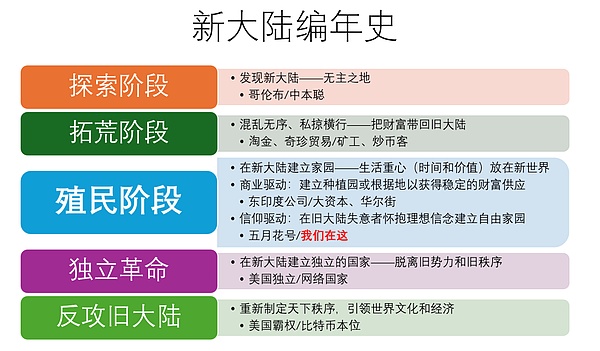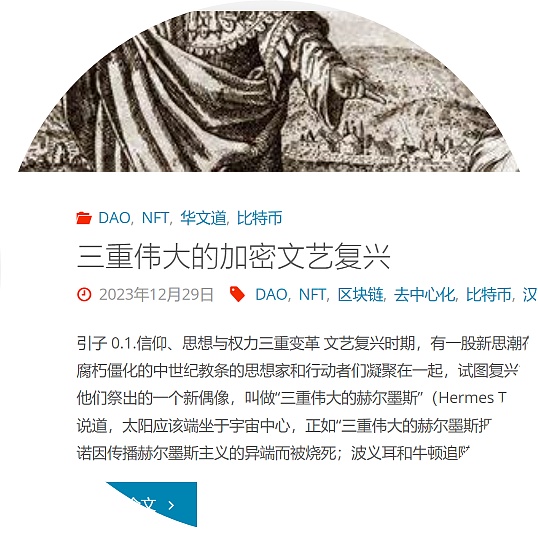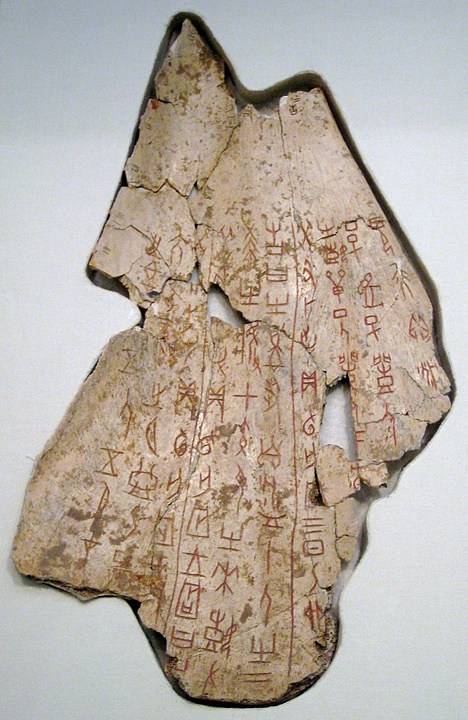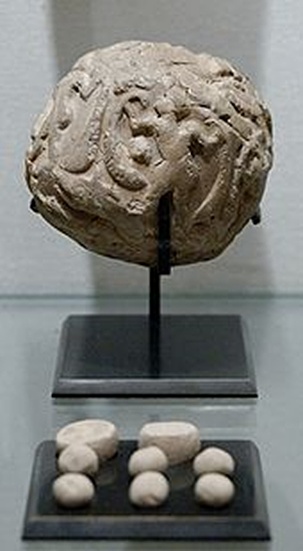Are Chinese people inferior to foreigners?
Most of the people at the Hong Kong Web3 Carnival are Chinese, and most of the lectures and activities are mainly in Chinese. In fact, since 2013 when I entered the field, Chinese have always been an important participant in the blockchain field. At that time, there were Friedcat and Avalon Miner, Bitcoin China, Huobi, etc., and China occupied half of the entire Bitcoin mining and exchange. Today, although mining and exchanges have been banned, more Chinese developers, capital parties and investors continue to participate in this wave in various forms, unwilling to fall behind.
However, Chinese players often belittle themselves, saying that "even dogs don't play Chinese projects". They try to get foreigners to endorse things that are obviously Chinese, or simply pretend to be foreigners.
The prejudice against Chinese projects seems to be justifiable, because Chinese project owners are used to cutting leeks and cheating many people. But if you think about it carefully, there are actually many "big cuts" in the West. There was Fat Fat from Mt.gox, CSW who pretended to be Satoshi Nakamoto, and SBF from FTX who cut Wall Street together... They cut leeks much more ruthlessly than Chinese bosses. Among the Chinese who are also engaged in exchanges, there is Yang Linke in the front and CZ in the back, both of whom are relatively well-behaved. They are also engaged in forks, and Wu Jihan is consistent in his words and deeds and bets all his family assets, which is more decent than CSW. Even the "Sun Cut" who is often ridiculed has not actually done a big sin, and can only be ashamed of himself compared with those Western big cuts.
Of course, I don't mean to turn the map cannon around and bombard Westerners. In fact, there are many people who are cutting leeks, whether they are Chinese or foreigners. This is a phenomenon that the entire crypto movement must go through in this early stage.
Blockchain is a wild new continent, a "no man's land" in the digital world. History has proven that in the early stages of exploring and developing new continents, chaos and theft are rampant, which is normal. As the saying goes, heroes emerge in troubled times. If order is established too early without experiencing relatively wild competition, then this order is probably a simple continuation of the old order. In order to start over, break the old world and build a new world, chaos must be experienced.
In this no-man's land, those who were able to make a fortune quickly in the early days were often not elegant gentlemen. Many of the pioneers who first opened up new territories in the Western Age of Exploration were also frustrated people, heretics, gangsters, pirates, criminals, and so on.
Blockchain Chronicles
At this point I would like to repeat my "Chronicle of the New World". I believe that the development of the New World can be divided into the following five stages, starting from the discovery of the No Man's Land.
1. Exploration phase
The first stage began with Columbus and Satoshi Nakamoto, whose feat was to discover the New World, a rich unclaimed land. They had no idea what this continent would become, but they knew they were trying to get rid of the old order and find a new way out.
2. Pioneering stage
When people discover that the New World is a brand new wild land, not the rich East, some people may be disappointed, but others may be more excited. Because the New World is unknown, there are too many uncertainties. Therefore, merchants who pursue certainty prefer to go past the Cape of Good Hope and continue the traditional way of trade. Those who dare to explore the New World often do not have strong resources or backgrounds in the Old World. What they value is not so much the resources of the New World, but the "ownerless" environment, which makes it easier for adventurers to start from scratch.
So the New World at this stage was chaotic and disorderly, with privateering rampant, but of course order also began to be established spontaneously.
During this stage, gold diggers and rare treasure traders were the mainstream. Adventurers needed to bring their wealth back to the Old World to cash it in. Miners, cryptocurrency speculators, and MLM practitioners could easily make money during this period. In short, given that most people were too unfamiliar and fearful of the New World, whoever was brave enough would get rich during this stage.
3. Colonization
The third is the colonial stage. Of course, there are overlaps between these stages. The pioneering stage refers to the initial establishment of order from the wilderness, but the worldview and values of the pioneers are still centered on the old world. The economy of the New World does not have its own system, but ultimately has to be realized in the old world.
But at the same time, there is also a group of people who try to establish their homes in the New World, focus their lives on the New World, and may spend most of their lives in the New World. The profits they earn can also be increasingly cashed in the New World. These people are no longer adventurers, but colonists.
There are two types of motivations for colonists. One is driven by commercial interests. After the initial stage, it is no longer profitable to simply pick up gold or rare treasures in the New World. It is necessary to establish a more stable and lasting business model, such as establishing plantations or bases to provide stable output. And these bases always need someone to take care of them for a long time, which requires a group of immigrants who are willing to live in the New World for a long time. The values of this group of people still belong to the old world. They are attached to large institutions such as the East India Company, or large capital such as Wall Street today, working for them and helping capitalists seize and manage the wealth of the New World. But their own lives and work have gradually shifted to the New World, so they also have the desire to take root in the New World.
Another part of the colonists were driven by faith. They were often frustrated people in the Old World. They tried to escape the corrupt or rigid environment of the Old World and came to the New World with ideals and beliefs to build a free home.
As for the Age of Exploration, it corresponds to the Jesuits and the Puritans. The Jesuits, who were Catholics, felt threatened by Protestantism in the Old World and found it difficult to make progress, so they actively went to the East or the New World to spread their doctrines. The Puritans, on the other hand, disliked Catholicism, believing that the reforms of the Church of England were not thorough and that Protestants were still suffering from persecution, so they hoped to establish their ideal home in the New World.
Eventually, Catholicism achieved considerable success in South America, while the Mayflower, loaded with Puritans, took root in North America.
Corresponding to the history of blockchain, I think we are roughly in this colonial stage. On the one hand, the old money in the Old World began to establish permanent institutions in the New World, trying to monopolize the output of the New World's interests; on the other hand, more and more people who were dissatisfied with the Old World devoted themselves to the New World with all kinds of ideals and beliefs, trying to establish a spiritual home in the New World.
4. Independence Revolution
After that, it is time for the independence revolution. With the increase of colonists in the New World and the improvement of the economic system, more and more people are not satisfied with being the cash machines of the old money in the Old World. They are still willing to trade with the Old World, but they want to break away from the control of the Old World. Therefore, they will eventually establish an independent political system in the New World with a new system. The independence of the United States proves that the independence revolution is possible and progressive. Of course, this revolution is not necessarily successful. Whether the future of blockchain will always be controlled by the order of the Old World or whether it can successfully form independence is still undecided and requires further efforts. I hope that the "cyber state" will definitely replace the "nation-state" and become an independent new order.
5. Counterattack on the Old World
After the establishment of the new order, the thriving new world will eventually surpass the old continent and become the leader of the world order. On the other hand, the contradictions in the old continent are becoming increasingly intensified, and the old order will collapse on its own, even heading towards a "world war". However, due to the independence of space and system, the new world will be able to survive the war and accelerate its development, and eventually re-establish the world order and lead the world's culture and economy. The old world will eventually willingly transport gold to the new world, anchor the currency in the new world, and even align its concepts and systems with the new world. This is my ideal "Bitcoin-based" era.


Belief
Since we are in this position comparable to the Mayflower, what I want to focus on today is what kind of faith we can have.
In my article "The Three Great Crypto Renaissances", I regard "faith" as one of the three important elements of human society, along with thought and power.
It should be noted that faith does not necessarily require religion, which is just a form of faith. The faith I am talking about here is broad, as everyone has some faith to a greater or lesser extent, and every society or culture also necessarily contains the dimension of faith.
What is faith? In short, faith is something that provides a transcendent meaning.
The pursuit of "meaning" is a human characteristic and a manifestation of "free will" - if your actions are out of free will, it means that you do not act out of instinct or blind obedience, but out of your own consideration or planning. You do things that you think are meaningful, and this is a manifestation of your freedom.
In addition to the intrinsic meaning of games, the meaning of many actions must appeal to external things, such as work to make money, making money to buy a house, buying a house to get married, getting married to have a baby, etc. We constantly entrust our lives to the next life. But everyone's sustenance will encounter a desperate limit, that is, the finiteness of life - individual life is limited and so short.
Individuals may be able to live a normal life without considering any transcendental pursuits, but human society as a whole cannot be maintained without transcendence. In fact, transcending mortality is the eternal theme of human civilization and the driving force of thought and technology. Scientists may not believe in heaven or the afterlife, but naming their names after a constant is the highest honor that most scientists will not refuse. Writers and artists, craftsmen and engineers all hope that their works will remain in the world forever, and the most ordinary people often pin their future on their children.
The pursuit of transcendental meaning is a common feature of human civilization; however, the specific way in which transcendence is expressed reflects the differences in human civilization. Different eras and cultures have different ways of pursuing it.
So in this information age, what can we still believe in?
The transcendence of reality
The transcendence I mentioned above refers to transcending individual human life, but it does not necessarily require transcending the human group or even the entire real world. However, in Western culture, things that provide transcendental meaning are often transcendental existences. The latter "transcendence" refers to things that transcend the real world and actual experience. The other side of the world, the Last Judgment, the reincarnation of the soul, the six realms of reincarnation... Western and Indian religions provide these transcendental existences to satisfy people's pursuit of transcendental meaning.
But there are also some things that carry transcendental pursuits and are real in themselves, such as truth, goodness, beauty, dignity, justice, posthumous reputation, etc.
The poem "Life is precious, but love is more precious. If it is for freedom, both can be abandoned" talks about two kinds of meaning that transcend individual life: love and freedom. The same is true of Mencius's "sacrifice life for justice". Scientists also fight for priority and naming rights, which is also a kind of "posthumous reputation". People of noble character and lofty ideals also said "Since ancient times, everyone has to die, but I will leave my loyalty to shine in history", which is to regard history books as the carrier of transcendental meaning.
This kind of pursuit of transcendence in the real world exists in both Eastern and Western societies, but is more prominent in traditional Chinese culture.
In short, the way to transcend the limitations of the individual self is to expand the narrow self to a higher level of self. In Western religions, this transcendental self is the immortal soul, the self in the transcendental world. In Chinese culture, the direction of self-transcendence is " self → world ". In the final analysis, this real world that leaves my mark is regarded as the continuation of my individual life.


To be continued...








